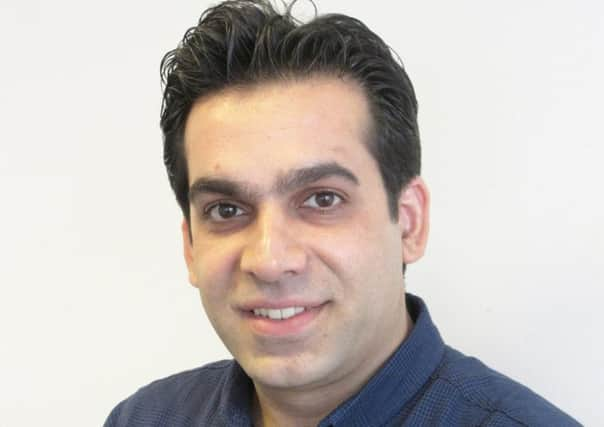Dylan Fotoohi: Do we have a moral responsibility to open our borders to address inequality?


Having now welcomed seven outstanding members of the refugee community into YAS, we’ve come to ask some big questions about the migration systems that exist in the UK – and indeed the world – today.
Human movement is not a new phenomenon. Throughout the history of humankind, people have moved from place to place for reasons similar to today – in pursuit of safety, food, shelter, material and social advantage. Human mobility is an unchanged fact, ingrained in human nature. What is changing is the social, economic, political, and legal arrangements that determine, allow, or restrict human movement.
Advertisement
Hide AdAdvertisement
Hide AdAre the arrangements we have set up in the 21st century fair and morally defensible? What if we don’t restrict human movement? Is a world without borders desirable, or even possible?
To stimulate further thinking on these questions, the RSE Young Academy of Scotland organised a public debate as part of the Royal Society of Edinburgh’s Curious Summer Events Programme. On one side sat Hugh V McLachlan, Professor Emeritus in Applied Philosophy at Glasgow Caledonian University. Hugh argued that states have a moral right and a moral duty to monitor and control their borders; states should be recognised as having discretion regarding who they permit to cross their borders and the conditions of their stay.
On the other side sat Dr Chris Gilligan, senior lecturer in Sociology at University of West of Scotland and a pro-migrant campaigning activist. Chris argued that human freedom is at the heart of debates over immigration controls; if we agree that freedom is essential to human flourishing, then there is no morally defensible argument against free movement. Early in the debate, it became clear that both sides agreed that global inequality exists. Within the current global arrangements, in which humans are divided into nation-states sharing cultural, linguistic, and often ethnic similarities, people are subject to unequal access to resources and opportunities. Birth place is a matter of pure luck – however, it directly and indirectly impacts and determines people’s material and non-material worth and entitlement.
Life is unfair, but do we have a moral obligation to address this unfairness? One would argue no, as long as we do not cause the unfairness. The extent of our moral obligation is to inflict no misery and harm on other humans. We are not morally responsible to address other people’s suffering caused by their unluckiness. We are not morally obliged to share our food with the children of our neighbour, just because they were unlucky to be born in a poor household, though we can choose to do so as a matter of charity.
Similarly, we are not morally obliged to open our borders or share our national resources to address the poverty and suffering of others who are simply unlucky to be born on the wrong side of the border. Is allowing human movement into our national territory a matter of charity and not a moral obligation?
However, one might also argue that inequality is essential to the success of our current global political and economic systems. If one concedes that the wealth, peace, and comfort experienced in the global north is only possible at the expense of poverty, conflict, and suffering in other countries, do we not then have a moral responsibility to reshuffle our systems and rethink our criteria?
An intellectual discussion on a complex subject such as migration usually leads to more questions than answers, and this was the case at our debate. For those who are interested in intellectual progress, though, conversation is the only available tool.
Unfortunately, discussions around migration and border control are highly politicised and sensitive. They are used as increasingly divisive political tools; dialogue is overshadowed by propaganda and restricted by political correctness. People are pushed into their echo chambers in the absence of intellectual dialogue. More discussions, and debates are needed to engage the public in open and intellectual conversations in order to increase the depth and accuracy of thoughts.
Dylan Fotoohi, member of the RSE Young Academy of Scotland.